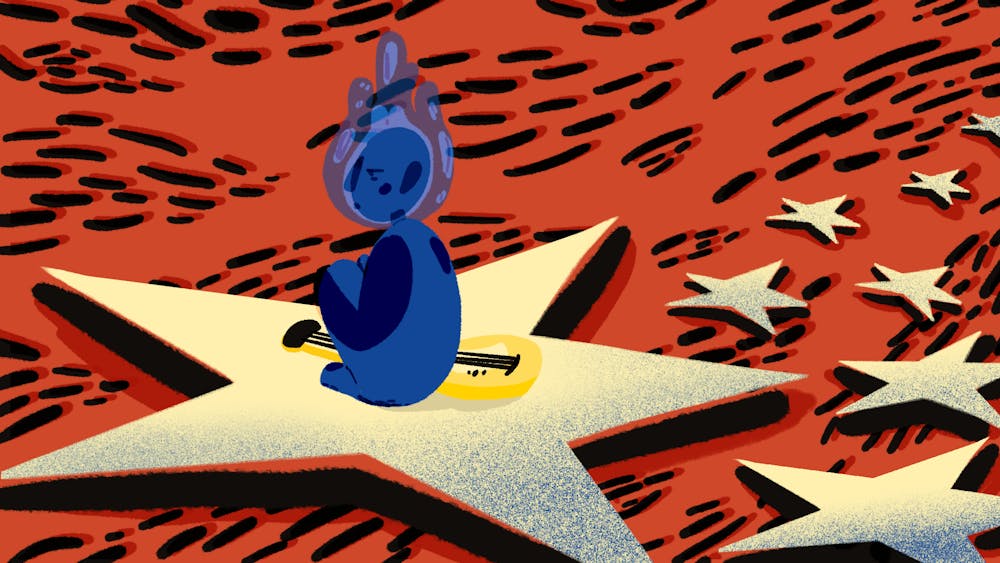It’s not an uncommon thought to dream of being famous. Strangers knowing your name, having an infinite amount of money to spend, taking luxurious vacations, and doing what you love for a living—all of these prospects seem quite enticing.
But when did we begin to realize that maybe fame isn’t all it’s cracked up to be? Was it seeing Britney Spears go “off the rails” in 2007–2008 when she attacked paparazzi with an umbrella and lost custody of her sons? Or maybe it was when Justin Bieber had complete meltdowns in public, including urinating into a mop bucket and being arrested for driving under the influence and drag racing? Or maybe it was simply after seeing the tragic drug overdose deaths of Michael Jackson, Whitney Houston, and Prince, once happy people who lost their spark after gaining fame. It’s time we take a look at the harsh realities that come with being a star.
Child stars are the most vulnerable to the negative effects of fame. Most experts credit the sheer lack of normalcy child stars have growing up as the root source of the mental breakdowns we often see in these children. Young celebrities often miss out on quintessential childhood experiences, like attending grade school and socializing with peers. Instead, they are thrown into the world of show business and live a life heavily structured around their work. This lack of normalcy is detrimental to the star’s social development and emotional regulation, which in turn increases the risk of them falling from grace.
But what accounts for adult celebrities going crazy? We must realize that normalcy exists for adults, too. In fact, the change might be even more pronounced, because they have experienced a non–famous lifestyle for a larger portion of their lives. Becoming a celebrity essentially takes away any personal privacy they’ve ever had. With overnight wonders growing increasingly common, once “average Joes” are stripped away from their everyday routines and thrust into stardom. Suddenly paparazzi follow you everywhere you go, and the slightest actions are scrutinized by the media and fans.
The harmful effects of stardom are reflected in up–and–coming singer Steve Lacy.
Born into a family of musicians residing in Compton, Calif., Steve Lacy joined the Grammy–nominated band The Internet at just 17. Two years later, Lacy released his debut solo project “Steve Lacy’s Demo,” recorded entirely on the iPhone GarageBand app. It was this EP that received critical acclaim and established Lacy as a talented producer and musician. In the past few years, Lacy’s reach has continued to grow, with his sophomore album “Gemini Rights” reaching No. 7 on the all–genre Billboard 200 chart and No. 1 on the Top Alternative and Rock Albums charts.
Steve Lacy's recent “Give You The World'' tour has garnered widespread attention due to his turbulent interactions with fans. In October 2022 in New Orleans, Lacy cut his set short after a fan threw a disposable camera at him while he was performing “Bad Habit.” Lacy addressed the crowd rudely, instructing fans to “Don’t throw shit on my fucking stage, please!” He then walked up to a fan holding a camera at the front of the crowd, asked them to hand it over and proceeded to aggressively smash the camera on the ground. Lacy then left the stage, muttering “Yeah, that’s it. Peace,” and not returning for the encore that finishes out his show.
Following the incident, Lacy posted on Instagram: “i don’t believe i owe anyone an apology- maybe i couldve reacted better? sure. always. i’m a student of life. but i’m a real person with real feelings and real reactions.”
In another report that circulated around the internet, a fan screamed out, “Can you say hi to my mom?” Lacy quickly snapped back, “Can you be quiet?” before immediately launching into his next song.
This incident of Lacy throwing the fan’s camera can be traced back to a lack of empathy we see in many stars today. The wealth and fame that come with celebrity status creates a sense of entitlement and distorted view of reality. Celebrities live a lifestyle that the average person does not, and this makes it difficult for them to relate to or understand the experiences of their fans. Again, this dissociation from societal norms can be explained by the sudden absence of normality celebrities face.
Lacy’s erratic behavior onstage eerily parallels that of Kid Cudi at Rolling Loud Miami in 2022; he walked off the stage mid–song after fans threw water bottles on stage. Kid Cudi has been vocal about his struggles with anxiety and depression, though it took him several years to admit this to the public. Celebrities often struggle to discuss their mental health openly because they feel that lack of normalcy in their lives due to the unique challenges that come with fame. This sense of isolation stems from how different they feel from their fans and the public, and in turn creates a reluctance to speak out and get help.
The culture of fame that exists in the world today must be reformed, and the transition from a civilian lifestyle to a life of stardom must be smoother for new celebrities. In order to protect the mental health of rising stars, we as fans must practice appropriate concert etiquette and push for greater respect for celebrities' right to privacy in public spaces. We also must push to create a supportive and stigma–free environment for celebrities to seek help and be open about their mental health struggles, despite their fear of negative publicity or damage to their career. They should be able to come forward about their hardships and be accepted and heard by the public, an unseen luxury non–celebrities have.
Though celebrities will never be “normal,” striving to make these stars feel at least a slight sense of regularity might be the answer to the widespread mental health problem that plagues the celebrity bubble.

